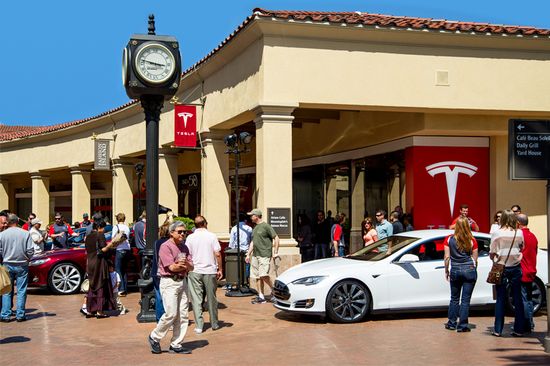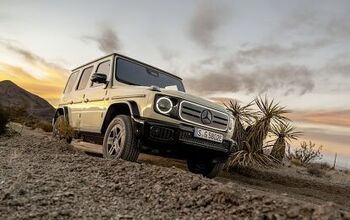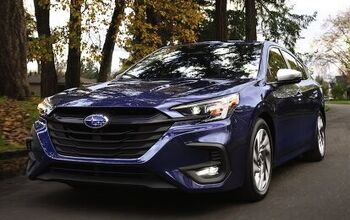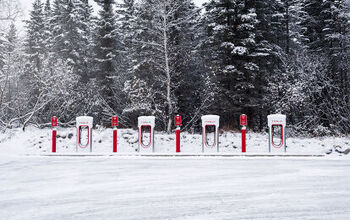California New Car Dealers Seek DMV Probe Into "Egregious" Tesla Advertising
Tesla factory owned store in Newport Beach, California
In the continuing battle between Tesla, which wants to sell cars directly to consumers, and car dealers, who are using state laws to keep the EV startup from opening factory outlets, the California New Car Dealers Association has asked that state’s DMV to “investigate and remedy several egregious violations and advertising and consumer protection laws” by Tesla.
According to Automotive News, dealers say that Tesla advertising that includes “packed external savings” like fuel costs, incentives and federal tax credits, in calculating the cost of ownership is misleading. For example, the dealer group says that the available $7,500 U.S. federal tax credit should not be included in Tesla’s advertising since only 20% of taxpayers pay enough taxes to qualify for the tax credit.
The CNCDA membership is comprised of 1,100 franchised new-car and -truck dealerships in California, which is the largest individual state or provincial market in North America. In an interview, Brian Maas, president of the dealer association said, “We don’t have any quibble with Tesla’s ability to sell cars, it’s how they are selling cars that is the problem.” Tesla declined to comment on the suggested investigation.
Tesla has run into problems trying to sell cars directly to consumers in Texas and New York but California law permits car manufacturer direct sales as long as they follow advertising guidelines and other consumer protection regulations imposed on traditional dealerships.
“The general thrust is that Tesla is misleading consumers into thinking the monthly cost that you’re going to pay for one of their vehicles is substantially lower than the actual money” that consumers will have to pay, Maas said.
“It’s misleading,” Maas added. “If you checked every box on their true cost of ownership series of inquiries, they claim you can get a Model S for $114 a month, which is lower than the cheapest [new] car available in the United States, the Nissan Versa — which would cost you, with a lease deal, about $139 a month.”
More by TTAC Staff
Latest Car Reviews
Read moreLatest Product Reviews
Read moreRecent Comments
- Kwik_Shift_Pro4X Mazda CX-5 all the way.
- Spookiness The Mazda interior really is nice. I recognize the rationale for the Mazda infotainment interface design in lieu of a touch screen, but the filthy masses have spoken. As with the rotary engine, it's time to move on. To sell more cars they'll need to have touchscreens. Other carmakers have evolved beyond the iPad-screwed-on-top-the-dash look, so I'm sure Mazda can come up with something aesthetically pleasing and user-friendly. (Another quibble: I really don't need or want AWD, so I wish it wasn't forced. But again, the masses have spoken.)
- Lou_BC “We are always listening to the customer. "You sayin' the baller/gangsta types don't want Escalades on 24's that don't make vroom vroom rumbly sounds?
- AZFelix I shall fully endorse the use of autonomous cars on public roads once they have successfully completed my proposed Turing test for self driving vehicles. This test requires the successful completion of an at fault incident and accident free 24/7 driving session in Buffalo and upstate New York from October 1st until March 31st, and throughout the city of Jakarta, Indonesia for one consecutive year. Only Level 1 and Level 5 vehicles are permissible.
- Lou_BC I'd go Rav4. No Mazda dealer in my town and from what I've seen, Mazda's tend to rust.


































Comments
Join the conversation
Wow! Buying an item with a ten or fifteen year useful economic life creates an ongoing relationship between buyer and seller(s). That said, car dealerships are still modeled after 19th century livery stables and animal sales. A dog eat dog environment to say the least. Personally, I think Tesla is getting roughed over by the established car dealers, at least in some jurisdictions. Maybe things will work out for Tesla. Maybe their mail order customers will all end up happy. Then again, maybe Tesla will fail, and its customers will end up getting screwed. This is America! Tesla's potential customers are not the little sisters of the poor. Let it happen. If they do end up with the short end of the stick, so be it. Big boys and girls should be able to take care of themselves.
As a Tesla Model S owner I have the perspective of personal experience. Buying process was fine, delivery well handled, and the car is fabulous. Some of the economic claims are far-fetched, but generally based on factors which are presented accurately, if not prominently, in Tesla's marketing materials. If anyone (including the dealer networks) feel that Tesla's claims are dishonest, they are welcome to file complaints - but like many of you, I think the irony of car dealerships complaining about misleading advertising is delicious. What should by now be clear to everyone is that the sales paradigm has shifted. Local retailers, dealers and distributors must add significant value in order to prosper. Maintaining their role by legislation may be a short-term solution, but it's bound to fail in the long run. Incidentally - and off topic - if you plan to purchase an electric or plug-in hybrid, and you own a roof, get solar. It's quite cheap now (especially if you do-it-yourself) and the environmental and economic benefit of an electric car really "shines" (pun intended) with photovoltaics.